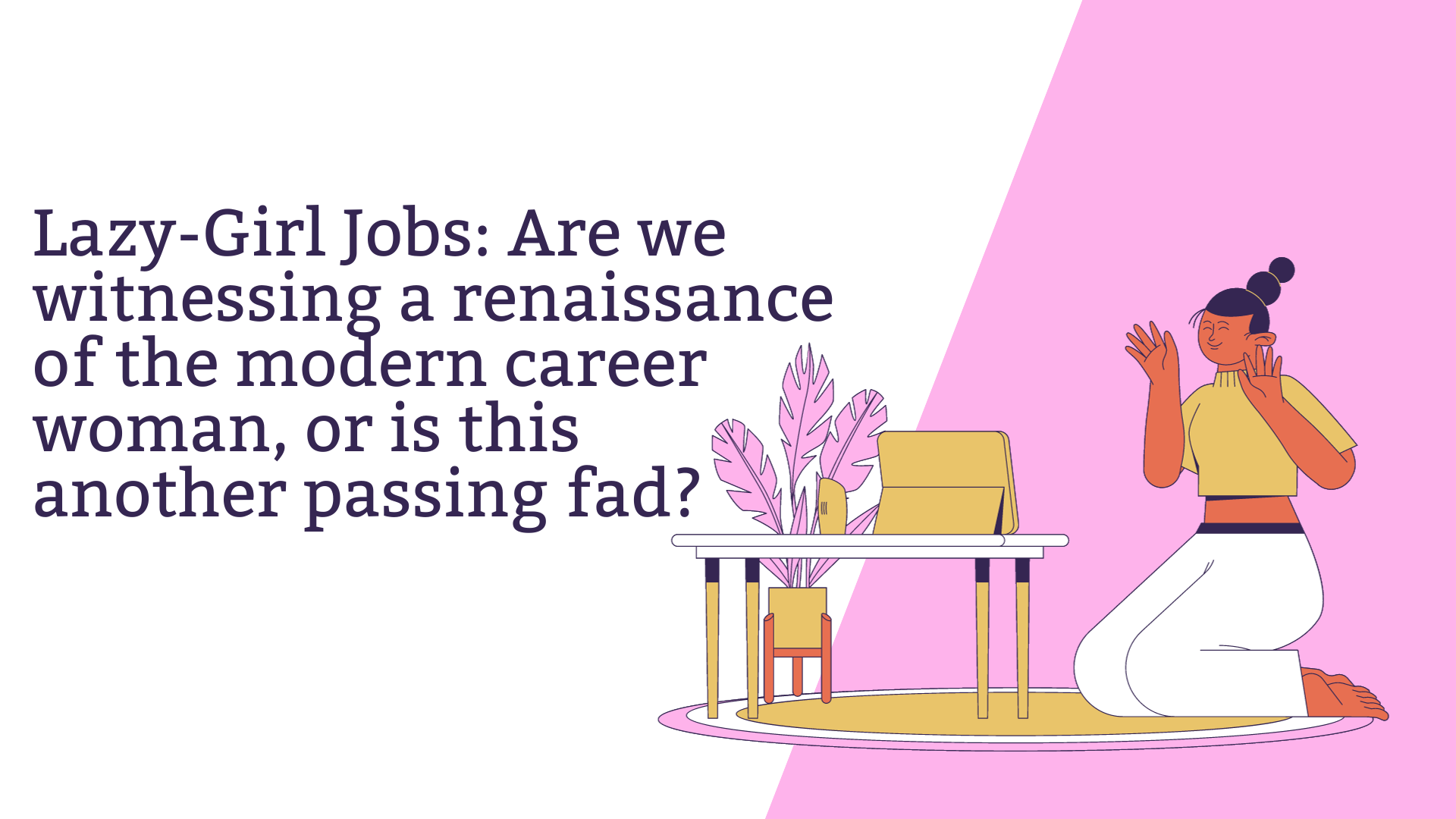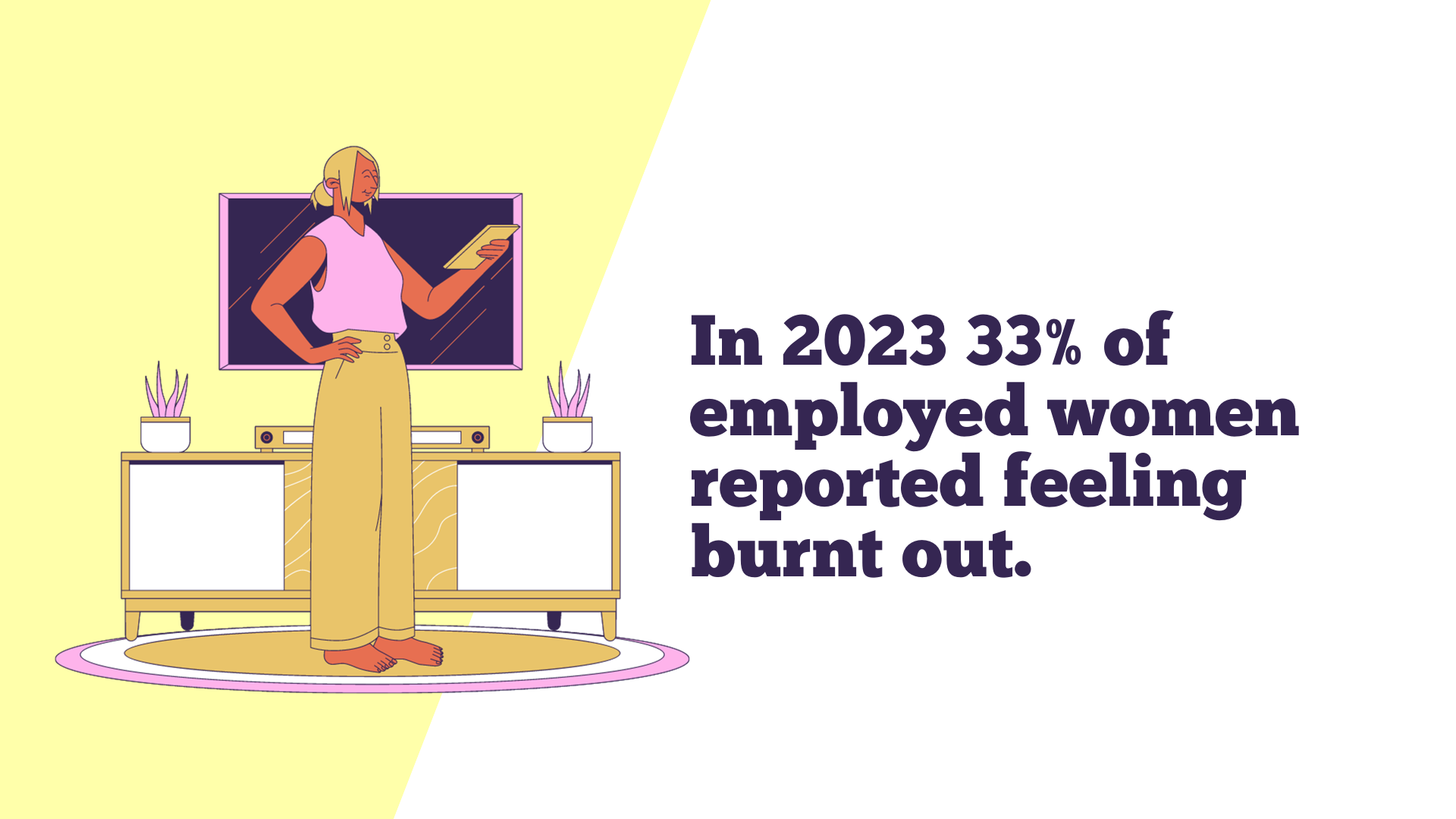
Exit Interview Questions: What to Ask and Why
Why are your employees leaving? Asking the right exit interview questions reveals the pattern behind high turnover and transforms offboarding into a roadmap for retention.


Founder & CEO of Bemana

Certified Psychology Expert, Life Coach & Founder of Life Architekture

Professional Growth Specialist

Ph.D., Digital Strategist & Holistic Coach of The Wholehearted Path

CEO of Career Thinker Inc. & Career Coach

Certified Professional Resume Writer (CPRW) & Senior Content Specialist at Resume Genius
With 17 million views, the hashtag #lazygirljob went viral earlier this year.
Hundreds of young women are sharing their stories of jobs with comfortable salaries, few pressures, and lax working hours.
Some even argue that this trend is a response to America’s glorified workaholism culture and a pushback against unrealistic work expectations. Others, however, believe the “lazy girl job” narrative is damaging to women as it undermines their hard-won respect in the workplace.
But does setting boundaries around their career and wanting a better work-life balance make women lazy?
Ambition takes many forms, and not everyone’s career aspirations involve climbing the corporate ladder or dedicating extensive hours to work.
Months later, this debate still generates attention and raises the question: are we witnessing a renaissance of the modern career woman, or is this another passing fad?

So, what is a “lazy girl job”?
Simply put, a “lazy girl job” is a type of employment that prioritizes work-life balance.
The term “lazy girl job” might raise some eyebrows initially, but it’s a new perspective on modern work culture.
Coined by TikTok creator Gabrielle Judge, the concept redefines traditional job expectations, emphasizing flexibility, remote work, and a harmonious work-life balance.
As such, it’s particularly appealing to those in their twenties, single parents, or anyone eager to escape the daily grind of commuting.
But, despite the slacking undertones the term “lazy girl jobs” carries, these roles are far from being ‘lazy.’
Instead, they offer a type of professional freedom.
Employees are not micromanaged and have the autonomy to manage their day as they see fit as long as their tasks are completed.
Linn Atiyeh, Founder & CEO of Bemana, a recruiting firm, shares her perspective:

As Linn succinctly puts it, “Not everyone can be a leader, and that’s okay—necessary, even.”
In other words, the “lazy girl job” concept acknowledges that individuals have varying strengths and preferences, and not everyone thrives in a high-pressure, fast-paced environment.
While hustle culture often equates long hours and sacrifices in the name of career advancement, the “lazy girl job” trend suggests an alternative approach to achieving fulfillment and success.
Hence, one can recognize a “lazy girl job” by:
Bayu Prihandito, a certified psychology expert, life coach, and founder of Life Architekture, highlights the importance of looking beyond the label of “lazy girl jobs” to consider the psychological implications.
“These roles often offer greater flexibility and lower stress levels, which can significantly improve one’s mental health and work-life balance.”
However, Prihandito cautions that maintaining long-term success and work satisfaction requires a delicate balance between embracing new work practices and upholding traditional work ethics.

Like quiet quitting, productivity theater, Bare Minimum Mondays, and rage applying before it, these work-related micro-trends are a manifestation of a broader societal shift among 20- and 30-somethings of all genders.
So, what’s fueling this surge in anti-work discourse?
A closer look reveals that the “lazy girl jobs” trend stems from several factors.
It’s a response from women who feel alienated by a system that seems neither created by them nor for them.
McKinsey’s research highlights the stark disparities women face at work – the need to outperform men for equal recognition, the prevalence of microaggressions, biases in hiring and promotions, and more.
For women, this imbalance isn’t just a statistic – it’s a daily reality that leads to heightened stress levels.
Even before the pandemic, workplace burnout was alarmingly common.
Gallup’s findings revealed that nearly two-thirds of full-time employees experienced burnout at some point.
This issue is particularly acute for working women, who report stress on the job and burnout more frequently than their male counterparts—a gap that only widened during the COVID-19 pandemic.
In 2020, burnout rates increased among employed women and decreased among employed men.
In 2023, 33% of employed women reported feeling burnt out “very often” or “always,” compared to 25% of men. Intriguingly, this disparity exists regardless of whether employees have school-aged children.
The “lazy girl jobs” movement isn’t about laziness at all. It’s about drawing a line between self-care and overexertion.

Clearly, workplace dynamics have undergone a significant transformation in the last few years, particularly in how women approach their careers. This evolution has raised questions about the perception of women’s work ethic and why they gravitate towards these jobs.
So, are women actually lazy?
The evidence strongly suggests otherwise.
The Women in the Workplace report found that women’s ambition for career advancement has surged post-pandemic: 81% of women aim for a promotion this year, a notable increase from 70% in 2019.
Remarkably, 96% of women value their careers as much as men do, and this sentiment remains the same even among those striving for a better work-life balance.
The search for career fulfillment isn’t gender-specific; both women and men share similar aspirations in the workplace, like income.
However, women tend to value additional factors in addition to pay.
They seek workplaces that respect and promote mental health and well-being and offer flexibility in work.
Gallup’s studies show that while both male and female employees prioritize personal well-being in their careers, women place even greater importance on it. A significant 69% of women, compared to 58% of men, consider better personal well-being as a critical factor in choosing their next job.
Katharine Gallagher, a Professional Growth Specialist, captures the essence of this shift, stating, “I think that although the term itself may eventually fade away, the reason why it exploded online will live on.”

TikTok has put a spotlight on a variety of jobs ideal for those looking for a more relaxed work environment. Here are a few examples of lazy girl jobs:
These lazy girl job examples represent a glimpse, hinting at a broader spectrum of similar roles.
Many are turning to human resource software to find positions that align with their values and lifestyles. This software helps employers streamline their hiring processes and enables job seekers to find roles that suit their preferences for flexibility and work-life balance.
But it’s crucial to find an employer that embodies this ethos beyond just identifying a job title that aligns with what job seekers desire.
Mona Kirstein, Ph.D., Digital Strategist, Holistic Coach, and Consultant at The Wholehearted Path, frames it aptly: “Rather than “lazy-girl” jobs, I think the sustainable goal is “purposeful flexibility.” How can you match your strengths and values to roles that give back while still allowing work-life integration?”
Looking for a lazy girl job that still pays well?
For those seeking a stress-free yet financially rewarding career path, consider these “low-effort” jobs with impressive compensation packages.
By now, thousands of women have enthusiastically shared their experience of having a lazy girl job. They boast about the freedom to take naps during work hours, prepare meals, and even slip out for hair appointments, all without the weight of guilt.
In other words, the key to being happy at work is controlling their time and schedule without sacrificing personal time for work commitments.
Take, for instance, the story of 23-year-old Victoria Bilodeau, a TikToker who transitioned from an environmental technician earning $26 an hour to a freelance digital marketing specialist. Despite earning less, Victoria finds greater joy in her new role, as it allows her time to indulge in her hobbies.
This paints a vivid picture of a work culture that’s dramatically shifting, valuing autonomy and personal well-being over a culture of overworking.
The “lazy girl job” trend presents an intriguing mix of potential positives and negatives in the business world, largely dependent on how employers respond.
Companies that quickly adapt to understand and meet the needs of the youngest generation in the workforce will be better equipped for the challenges of attracting Gen Z employees.
Thomas Powner, CEO and Career Coach at Career Thinker Inc. shares his perspective: “COVID-19 has opened up a new era of what the future workplace will be. The trend of “lazy-girl jobs” will continue to be a fit for some people who need a paycheck and are not deeply concerned about building a career and professional brand.
It will also continue to be a fit for companies that need to flex their teams to match workflow.
However, it is crucial to consider the potential drawbacks of these jobs, such as limited income, lack of structure and mentorship, and career progression. Ultimately, pursuing a “lazy-girl job” depends on individual priorities and values.”
Echoing these thoughts is Eva Chan, Senior Content Specialist. On the topic of the lasting impact of this trend, Eva offers her viewpoint:
“Yes, it’s sustainable because it reflects a broader desire for roles that offer lower stress and a reprieve from the intense “hustle culture” or “girl boss” trend from past years.
These roles have the potential for less stress and a healthier balance between work and personal life, making them attractive for anyone prioritizing well-being over career advancement.”
Senior Content Writer at Shortlister
Browse our curated list of vendors to find the best solution for your needs.
Subscribe to our newsletter for the latest trends, expert tips, and workplace insights!

Why are your employees leaving? Asking the right exit interview questions reveals the pattern behind high turnover and transforms offboarding into a roadmap for retention.

Strategic leadership focuses on the “bigger picture,” helping companies benefit in the long run. Learn what skills it takes to get there and why this leadership style is paramount in today’s workplace.

Great HR is built on understanding human experiences. These HR podcasts share real stories by real experts for an insider look at the moments that shape careers and transform workplaces.

A degree is no longer the only path to landing a great job. As companies relax their degree requirements, our skills-first hiring guide explores how to redefine employment criteria to build a more diverse and capable team.
Used by most of the top employee benefits consultants in the US, Shortlister is where you can find, research and select HR and benefits vendors for your clients.
Shortlister helps you reach your ideal prospects. Claim your free account to control your message and receive employer, consultant and health plan leads.